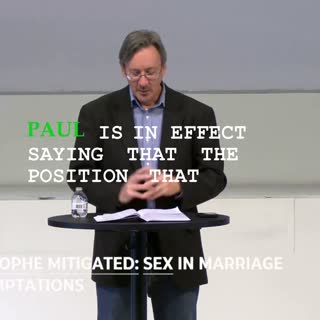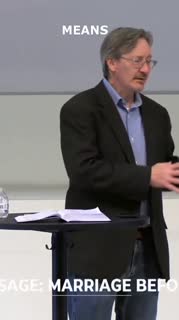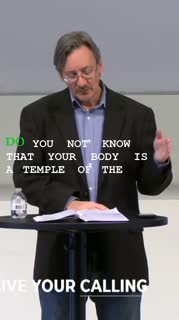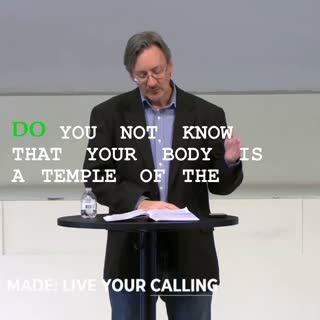Good morning, church. Today, we delve into a topic that is often challenging to discuss openly, especially within the church setting: sex and its place within marriage. As we explore 1 Corinthians 7, we confront the discomfort and vulnerability that often accompany discussions about sexuality. The Corinthian church, much like us today, struggled with understanding the balance between spirituality and physicality, often pitting one against the other. This passage is not a comprehensive guide to marriage but addresses specific issues within the Corinthian church, emphasizing the importance of understanding the interconnectedness of our spiritual and physical lives.
Paul addresses a misconception within the Corinthian church that abstaining from sex within marriage could lead to greater spirituality. This belief, rooted in a dualistic worldview that separates the physical from the spiritual, is challenged by Paul. He argues that our physical lives, including our sexuality, are deeply connected to our spiritual lives. The act of marriage, including sexual union, is a reflection of the spiritual union we have with Christ. Paul emphasizes that sex within marriage is not only permissible but necessary to prevent sexual immorality and to foster a deeper connection between spouses.
Furthermore, Paul introduces a radical concept for his time: mutual authority within marriage. He asserts that both husband and wife have authority over each other's bodies, promoting a relationship of mutual respect and selflessness. This mutuality is a reflection of the Christian ethic of putting others before oneself, a principle that should be especially evident in marriage.
Paul also touches on the topic of singleness, acknowledging it as a valid and holy calling. He recognizes that not everyone is called to marriage and that singleness can be a gift from God. However, for those who are married, the sexual relationship is a vital part of their covenant, serving as a means to avoid sexual sin and to express love and commitment to one another.
In closing, we are reminded that our bodies are temples of the Holy Spirit, and whether single or married, we are called to glorify God in our bodies. Our physical and spiritual lives are intertwined, and we are to live out our callings in a way that honors God and reflects His love to the world.
Key Takeaways
- 1. Interconnectedness of Physical and Spiritual Lives: Our physical actions, including sexuality, are deeply connected to our spiritual lives. Paul challenges the dualistic view that separates the two, emphasizing that our bodies and spirits are meant to be unified in honoring God. [14:10]
- 2. Mutual Authority in Marriage: Paul introduces the concept of mutual authority within marriage, where both spouses have rights over each other's bodies. This mutuality reflects the Christian ethic of selflessness and love, challenging cultural norms of his time. [27:42]
- 3. Sex as a Safeguard Against Immorality: Paul emphasizes that sex within marriage is a safeguard against sexual immorality. It is a means to fulfill physical desires in a way that honors God and strengthens the marital bond. [22:02]
- 4. Singleness as a Holy Calling: Singleness is recognized as a valid and holy calling, not inferior to marriage. Paul acknowledges that each person has their own gift from God, whether it be marriage or singleness, and both are to be lived out in a way that honors God. [33:22]
- 5. Living as Temples of the Holy Spirit: Regardless of marital status, we are called to live as temples of the Holy Spirit, glorifying God in our bodies. Our lives, both physical and spiritual, are to reflect God's love and holiness to the world. [36:13]
** [36:13]
Youtube Chapters
- [00:00] - Welcome
- [00:48] - Introduction to Sensitive Topics
- [01:43] - The Challenge of Preaching on Sex
- [04:34] - Vulnerability and Brokenness
- [05:42] - Prayer and Context
- [07:33] - Corinthian Misunderstandings
- [09:27] - Dualism and Spirituality
- [10:39] - Cultural Influences on Celibacy
- [12:14] - The Unity of Body and Spirit
- [14:10] - Creation and Physicality
- [15:17] - Addressing Sexual Immorality
- [16:42] - Occasional Theology
- [18:49] - Specific Issues in Corinth
- [20:07] - The Role of Sex in Marriage
- [22:02] - Mutual Authority and Respect
- [25:34] - Singleness and Calling
- [31:35] - Living as Temples of the Holy Spirit








